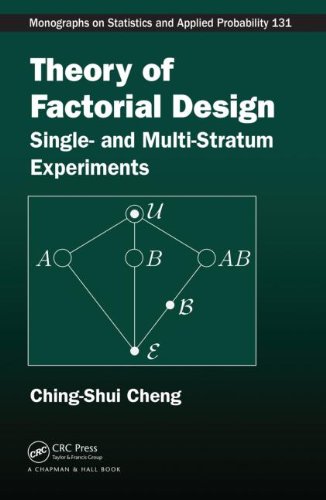

Most ebook files are in PDF format, so you can easily read them using various software such as Foxit Reader or directly on the Google Chrome browser.
Some ebook files are released by publishers in other formats such as .awz, .mobi, .epub, .fb2, etc. You may need to install specific software to read these formats on mobile/PC, such as Calibre.
Please read the tutorial at this link: https://ebookbell.com/faq
We offer FREE conversion to the popular formats you request; however, this may take some time. Therefore, right after payment, please email us, and we will try to provide the service as quickly as possible.
For some exceptional file formats or broken links (if any), please refrain from opening any disputes. Instead, email us first, and we will try to assist within a maximum of 6 hours.
EbookBell Team

4.1
60 reviewsBringing together both new and old results, Theory of Factorial Design: Single- and Multi-Stratum Experiments provides a rigorous, systematic, and up-to-date treatment of the theoretical aspects of factorial design. To prepare readers for a general theory, the author first presents a unified treatment of several simple designs, including completely randomized designs, block designs, and row-column designs. As such, the book is accessible to readers with minimal exposure to experimental design. With exercises and numerous examples, it is suitable as a reference for researchers and as a textbook for advanced graduate students.
In addition to traditional topics and a thorough discussion of the popular minimum aberration criterion, the book covers many topics and new results not found in existing books. These include results on the structures of two-level resolution IV designs, methods for constructing such designs beyond the familiar foldover method, the extension of minimum aberration to nonregular designs, the equivalence of generalized minimum aberration and minimum moment aberration, a Bayesian approach, and some results on nonregular designs. The book also presents a theory that provides a unifying framework for the design and analysis of factorial experiments with multiple strata (error terms) arising from complicated structures of the experimental units. This theory can be systematically applied to various structures of experimental units instead of treating each on a case-by-case basis.